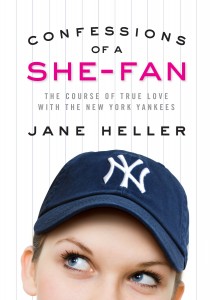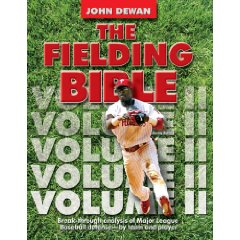 When Joe Girardi went with Phil Coke and then David Robertson in the ninth inning of a tie game on the road yesterday, my thoughts turned to Joe Torre. While this strategic decision isn’t unique to either of the last two Yankee managers, it was a move we saw Torre make over and over again. The most egregious example came in Game 4 of the 2003 World Series when Mariano Rivera, the Yanks’ best reliever, never entered the 12-inning game, and Jeff Weaver gave up the game-winning home run to the light-hitting Alex Gonzalez.
When Joe Girardi went with Phil Coke and then David Robertson in the ninth inning of a tie game on the road yesterday, my thoughts turned to Joe Torre. While this strategic decision isn’t unique to either of the last two Yankee managers, it was a move we saw Torre make over and over again. The most egregious example came in Game 4 of the 2003 World Series when Mariano Rivera, the Yanks’ best reliever, never entered the 12-inning game, and Jeff Weaver gave up the game-winning home run to the light-hitting Alex Gonzalez.
These days, Joe Torre seems like a distant memory of days gone by. We laugh sadly and knowingly when hearing news of Scott Proctor’s impending surgery, and we see how, across the country, Torre’s Dodgers currently own the best record and a whopping +87 run differential as they run away with the NL West. Maybe an October homecoming for Torre is in the cards.
Earlier this year, as Yankee fans grew more accustomed to life under a different Joe, Torre thrust himself back into the spotlight when he and Tom Verducci published The Yankee Years. Ostensibly a Verducci book in which Torre takes on the third person as though being interviewed by the Sports Illustrated scribe, the tell-all memoir takes a path back through the rise and fall of Torre in the Bronx. The rise is, of course, Torre’s doing; the fall is not.
I read the book shortly after it came out in February, and I’ve been sitting on the review since then. At the time, I wondered why Torre bothered, and after reading it, I wasn’t really sure what I wanted to say. It seemed like a vindictive way to get back at the Steinbrenner family for unceremoniously booting Torre out of New York, and the book was quickly subsumed by the Selena Roberts revelations concerning Alex Rodriguez’s drug use. Appropriately, Torre and Verducci’s book is far outselling Roberts’ tome on Amazon, and that’s simply because it’s a better book.
Now, I’m not in the camp of fans that think it’s a must-read. For the most part, if you were a fan from 1996 until the present, the book unveils nothing new. Torre claims ignorance to the drug use that, according to the Mitchell Report, was rampant in the Yankee clubhouse in the late 1990s but knows that the players called A-Rod by the less-than-flattering “A-Fraud” nickname. He had a good rapport with most of his players and couldn’t get along with others. Who would have guessed?
Between the chapters focusing around the Torre narrative, Verducci writes about the state of the baseball world, and those sections bothered me. First, Verducci treads familiar ground in talking about steroids in the game. Anyone who has read Game of Shadows, Juicing The Game or Juice will find nothing new. Verducci also tackles both Moneyball and the rise of the Boston Red Sox as the paragons of baseball’s new way. The parts on the Red Sox were particularly galling because Verducci paints the team as doing no wrong while the Yankees did everything wrong.
As the book progresses, Torre reserves his worst criticism for George Steinbrenner’s meddling, Brian Cashman’s Red Sox envy that led to some supposedly wacky ideas from the Yanks’ GM and everyone but himself. It was Steinbrenner who pursued Randy Johnson. It was Steinbrenner who went with Gary Sheffield over Vladimir Guerrero. It was Cashman who tried to convince Torre to bat Giambi leadoff to maximize the number of runners on base, and it was Cashman who did not support Torre in the ill-fated final meeting after the Yanks’ 2007 playoff loss.
Torre says that his worst mistake while with the Yankees came a few weeks before his dismissal, when he did not pull Joba and the team off the field during an attack of the midges in Cleveland. It was perhaps his worst personal mistake because it cost him his job. But was it really more costly than the Jeff Weaver decision? The way the 2004 ALCS was managed? Hitting A-Rod eighth in 2006? I don’t think so.
In the end, Torre says he’s still rooting for the Yankees. “I have to pull for them,” he said. “People think because you leave the Yankees and supposedly you’re unhappy with each other that you’re supposed to pull against them. But I can’t pull against the individuals over there, least of all Girardi who played for me, coached for me.”
Torre seems to be at peace with himself for his book and for his ouster. I have to wonder, though, why the rest of us had to suffer through what is, in effect, a public outing of his personal dislike for those running the team. We know Joe Torre is a better person than the Randy Levines and Lonn Trosts. Writing a book about them — even though the book is mostly an entertaining romp through a dynastic era — just stoops to their level.
You can get Joe Torre and Tom Verducci’s The Yankee Years at Amazon. That link contains our affiliate code. So you can buy the book and support RAB at the same time.
 Nearly two years ago, Jane Heller penned a column in The Times expressing her utter frustration with the New York Yankees. Her favorite team since she was a teenager, the Yanks had frustrated her with their mediocre play, and finding little joy in the corporate and middling Bombers, she
Nearly two years ago, Jane Heller penned a column in The Times expressing her utter frustration with the New York Yankees. Her favorite team since she was a teenager, the Yanks had frustrated her with their mediocre play, and finding little joy in the corporate and middling Bombers, she 
 Those of us lucky — or rich — enough to attend the final game at Yankee Stadium last September all witnessed a spectacle of photography. There were over 56,000 fans at the game, and as the flashbulbs went off at every pitch, it seemed as though there were just as many cameras.
Those of us lucky — or rich — enough to attend the final game at Yankee Stadium last September all witnessed a spectacle of photography. There were over 56,000 fans at the game, and as the flashbulbs went off at every pitch, it seemed as though there were just as many cameras. 
 We all think … no wait … we all know we can be highly successful Major League General Managers. It’s a piece of cake. Sign this guy, trade these guys for that guy, cut that dude, deal this guy for a bag of balls to free up money, so on and so forth. It’s never as easy as we make it sound, but most of us will never get a chance to find that out for ourselves. Until now.
We all think … no wait … we all know we can be highly successful Major League General Managers. It’s a piece of cake. Sign this guy, trade these guys for that guy, cut that dude, deal this guy for a bag of balls to free up money, so on and so forth. It’s never as easy as we make it sound, but most of us will never get a chance to find that out for ourselves. Until now.